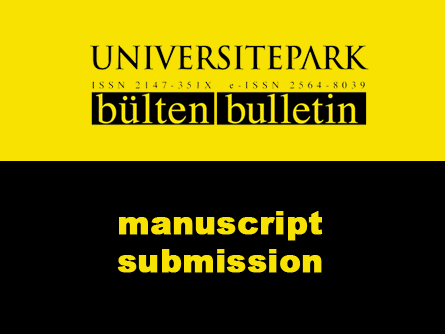Awareness and Implementation of Education for Sustainable Development in Technical Teacher Education in Tertiary Institutions, Rivers State, Nigeria
pp. 62-79 | Published Online: December 2022 | DOI: 10.22521/unibulletin.2022.112.4
Legborsi Nwineh
![]() Full text PDF |
670 |
197
Full text PDF |
670 |
197
Abstract
Background/purpose – This study investigated the level of awareness and implementation of elements of education for sustainable development in technical teacher education programs in tertiary institutions in Rivers State, Nigeria.
Materials/methods – Descriptive survey design was employed to collect data using a validated questionnaire to elicit both closed- and open-ended responses. The study sample consisted of 117 participants including 29 teachers and 88 final-year students purposively selected from three tertiary institutions that offer a technical teacher education program in Rivers State, Nigeria. Data were analyzed using frequency counts and percentages and the results presented using charts and a table.
Results – The result showed a minimal level of awareness of the concept of sustainable development among the study participants. Also, elements of sustainable development were notably integrated into the technical education curriculum, albeit sparingly. Furthermore, the result showed that integration of elements for sustainable development in the process of preparing students of technical teacher education were practiced rarely and occasionally.
Conclusion – A low level of awareness and implementation was revealed among the study group regarding the concept of education for sustainable development, and that this could negatively impact the achievement of sustainable development goals.
Keywords: sustainable development, education for sustainable development, technical and vocational education, awareness, implementation of sustainable development.
ReferencesAustralian Research Institute in Education for Sustainability. (2009). Education for sustainability: The role of education in engaging and equipping people for change. http://aries.mq.edu.au/publications/aries/efs_brochure/pdf/efs_brochure.pdf
Bonnett, M. (1999). Education for sustainable development: a coherent philosophy for environmental education? Cambridge Journal of Education, 29(3), 313-324. https://doi.org/10.1080/0305764990290302
Boyi, A. A. (2013). Education and sustainable national development in Nigeria: challenges and way forward. Mediterranean Journal of Social Sciences, 4(8), 147-152. http://dx.doi.org/10.5901/mjss.2013.v4n8p147
Commonwealth Secretariat. (2017). Curriculum Framework for Enabling the Sustainable Development Goals. The Commonwealth Library. https://doi.org/10.14217/ComSec.1064
Didham, R. J., & Paul, O. M. (2015). The Role of Education in the Sustainable Development Agenda: Empowering a learning society for sustainability through quality education. In IGES (2015) Achieving the Sustainable Development Goals: From agenda to action (pp. 94-129). Institute for Global Environmental Strategies. https://www.iges.or.jp/en/publication_documents/pub/bookchapter/en/4931/05_Ch5_Achieving_the_SDGs_.pdf
Dubois, R., Balgobin, K., Gomani, M. S., Kelemba, J. K., Konayuma, G. S., Phiri, M. L., & Simiyu, J. W. (2010). Integrating Sustainable Development in Technical and Vocational Education and Training. UNESCO-UNEVOC International Centre for Technical and Vocational Education and Training. https://unevoc.unesco.org/fileadmin/user_upload/docs/CS_vol2_ESD_Africa_Final.pdf
Gu, C. C., Gomes, T., & Brizuela, V. S. (2011). Technical and vocational education and training in support of strategic sustainable development [Master’s thesis]. Blekinge Institute of Technology, Sweden. http://www.diva-portal.org/smash/record.jsf?pid=diva2%3A832727&dswid=-1656
Islam, M. (2021). Problems of insufficient practical equipment: A study through technical and vocational education in Bangladesh. International Journal of Vocational and Technical Education, 7(1), 43-68. https://www.eajournals.org/journals/international-journal-vocational-technical-education-research-ijvter/
Jasper, C. J. (2008). Teaching for sustainable development: teachers’ Perceptions. [Master’s thesis]. University of Saskatchewan, Canada. https://harvest.usask.ca/handle/10388/etd-02042009-212522
King, K., & Palmer, R. (2007). Skills development and poverty reduction: A state of the art review. European Training Foundation. https://www.etf.europa.eu/en/publications-and-resources/publications/skills-development-and-poverty-reduction-state-art-review
Klarin, T. (2018). The concept of sustainable development: from its beginning to the contemporary issues. Zagreb International Review of Economics & Business, 21(1), 67-94. https://doi.org/10.2478/zireb-2018-0005
Majumdar, S. (2007). Integrating sustainable development in TVET curriculum [Conference presentation]. 11th UNESCO–APEID International Conference on Reinventing Higher Education: Toward Participatory and Sustainable Development, Bangkok, Thailand.
McKeown, R., Hopkins, C. A., Rizi, R., & Chrystalbridge, M. (2002). Education for sustainable development toolkit. Energy, Environment and Resources Center, University of Tennessee. http://kpe-kardits.kar.sch.gr/Aiforia/esd_toolkit_v2.pdf
Moy, S. (2008). The importance of incorporating education for sustainable development (ESD) into the secondary curriculum in order to minimise the problems of waste on South Tarawa [Master’s thesis]. University of Wellington New Zealand. https://researcharchive.vuw.ac.nz/xmlui/bitstream/handle/10063/1017/thesis.pdf?sequence=1
Nnabuo, P. O., & Asodike, J. D. (2012). Exploring education as a tool for sustainable development in Nigeria. European Scientific Journal, 8(10). https://eujournal.org/index.php/esj/article/view/158
Okoye, R., & Arimonu, M. O. (2016). Technical and Vocational Education in Nigeria: Issues, Challenges and a Way Forward. Journal of Education and Practice, 7(3), 113-118. https://iiste.org/Journals/index.php/JEP/article/view/28425
Pearce, D. (1993) Blueprint 3: Measuring Sustainable Development. Earthscan Publications.
Peter, C. J., Libunao, W. H., & Latif, A. A. (2016). Extent of education for sustainable development (ESD) integration in Malaysian community colleges. Journal of Technical Education and Training, 8(1), 1-13. https://publisher.uthm.edu.my/ojs/index.php/JTET/article/view/1194
Richard, V., Forget, D., & Gonzalez-Bautista, N. (2017). Implementing Sustainability in the Classroom at Université Laval. In W. L. Filho, M. Mifsud, C. Shiel, & R. Pretorius (Eds.), Handbook of Theory and Practice of Sustainable Development in Higher Education (pp. 133-147). Springer. https://doi.org/10.1007/978-3-319-47895-1_9
Taylor, S. K., & Creech, H. (2012). Technical-vocational education for sustainable development in Manitoba. International Institute for Sustainable Development. https://www.iisd.org/system/files/publications/technical_vocational_education_sd_mb.pdf
Thienemann, E. R. C. (2014). Education for Sustainable Development in Technical and Vocational Education and Training [Master’s thesis]. Stockholm University, Sweden. http://www.edu.su.se/polopoly_fs/1.204488.1411628990!/menu/standard/file/Elisabeth%20Thienemann%20No.%2027.pdf
United Nations. (1987). Our common future: report of the World Commission on Environment and Development (WCED). Oxford University Press.
United Nations. (2016). Sustainable Development Goals. http://un.org/sustainable development/sustainable-development-goals/
United Nations Educational, Scientific and Cultural Organization. (2005). UN Decade of Education for Sustainable Development 2005-2014 International Implementation Scheme https://unesdoc.unesco.org/ark:/48223/pf0000148654
United Nations Educational, Scientific and Cultural Organization. (2009). Review of contexts and structures for education for sustainable development. Retrieved from https://unesdoc.unesco.org/ark:/48223/pf0000184944
United Nations Educational, Scientific and Cultural Organization. (2012). Education for sustainable development: sourcebook. https://sustainabledevelopment.un.org/index.php?page=view&type=400&nr=926&menu=1515
UNIBULLETIN News!
► New issue coming soon! (Volume 13 Issue 1, 2024)
► Call for Papers
UNIBULLETIN is calling for submissions. Authors are invited to submit papers from the all fields of the Education (General) and Social Sciences (General) in the international context. All submissions should be presented only in English.
